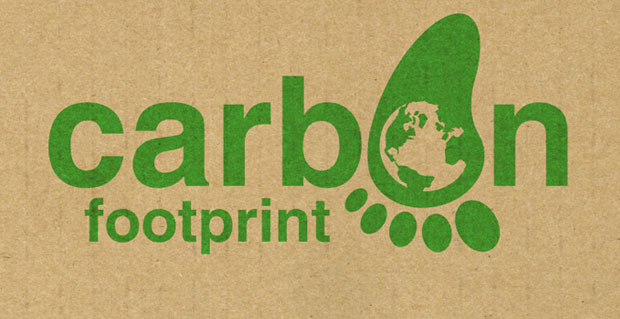According to a popular online dictionary, a carbon footprint is, “the amount of carbon dioxide or other carbon compounds emitted into the atmosphere by the activities of an individual, company, country, etc.” As you can see, it’s important that we (the human race) do all that we can do, in order to minimize our impact on the environment, and reduce our carbon footprint. Here are ten ways that you can diminish your individual impact on the environment:

10. Reduce Carbon-based Travel
Americans drive their cars a lot more than we probably should. For every thousand miles we drive, our car release about half of a ton of carbon. That’s a lot of carbon.
There are a couple of things that we can do to stop emitting so much carbon, through our driving. Many times, we drive somewhere that is well within walking distance. If you’re destination is just a few minutes away, ride a bike or walk. Get outside, get some exercise and forget using your car.
9. Check Your Tires
Having properly inflated tires will increase your car’s efficiency. Regularly check your tires, inflate them if necessary, and your car will produce less carbon monoxide.
8. Drive a Hybrid
Hybrid cars, like a Toyota Prius, will reduce your auto’s effect on the environment. Other fuel efficient cars, like smart cars, also emit much less carbon dioxide than what most people are currently driving. Not only are they helping to save the planet, they are also helping you keep your hard earned money in your pocket rather than giving it to the gas station.
7. Invest in Home Automation
Other than being your biggest asset, you home can also be the biggest source of unnecessary energy expenditure. Home automation can help save you money while helping to save the environment. A smart thermostat, solar powered panels, automatic lights and other energy saving gadgets could be the answer to saving thousands of dollars while significantly decreasing your energy expenditures. Check out customer reviews when shopping for a company. Top companies right now for home automation are Vivint, Protect America, and ADT.
6. Pull out the Cozy Blankets and Sweaters
There’s nothing better than snuggling up on the couch with a warm blanket and popping in a favorite movie. Save the planet this winter by taking advantage of the warm fuzzy and turning down the heat in the home. Put on an extra layer of clothes (you’ll be going outside sometime or another and will be needing more layers anyways), and throw on an extra blanket over the bed. That way you’ll still be toasty warm while reducing your carbon footprint.
5. Forget the Paper Coffee Cup
Some coffee shops give incentives by bringing your your own mug by discounting the cost of the brew. Paper cups, in reality could be used over and over but we tend to dispose of them pretty quickly. By throwing away paper or plastic products after a single use, you are dramatically increasing unnecessary waste especially if this is an everyday routine. Other than saving you money, by reusing your own mug you’ll be reducing, reusing, and recycling!
4. Avoid Unnecessary Business Trips
If you don’t need to travel for a meeting, don’t, try using skype instead. It may not be quite as personal, but you’ll be able to communicate in real time from the comforts of your own office. And you will be saving a bundle on travel tickets and time that could be used for more important things, like making your next big sale.
3. Just Say NO to Bottled Water
How much would you spend for a cup of tap water? Bottled water is pretty much the same exact thing except that it’s a billion dollar industry! Not only is it silly, it’s extremely wasteful. Instead, invest in a reusable bottle that you can refill whenever you need to.
2. Change Your Light Bulbs
Old incandescent light bulbs that you’ve got all over your house, and replace them with a much more energy efficient fluorescent light bulb. Just changing your light bulbs could save you over $6000 in cash and will reduce thousands of KWh of energy expenditures.
1. Buy Local
Buying local is a good idea for a number of reasons. First, buying local stimulates the local economy. Second, there is more nutrition in fresh produce. And Third, you are encouraging less mass production (which reduces mass gases and toxins sprayed on the produce which in turn is being emitted into the air) and you are encouraging less large scale transportation of product from big companies. Keep it local and within your community.
David Glenn is a home improvement expert. He occasionally freelance writes about home automation and making your home more green.























